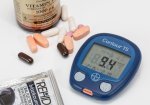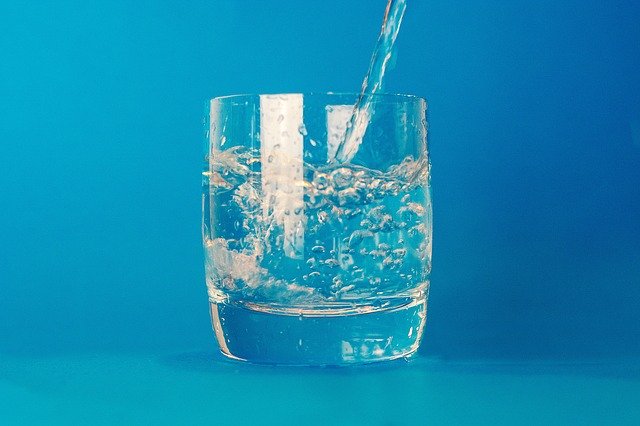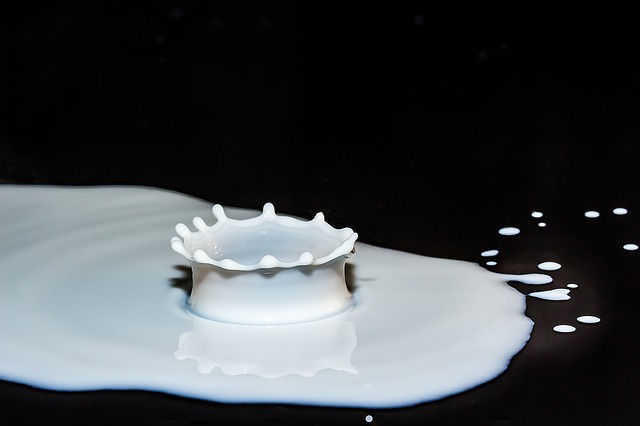Potassium and High Blood Pressure, What You Need to Know
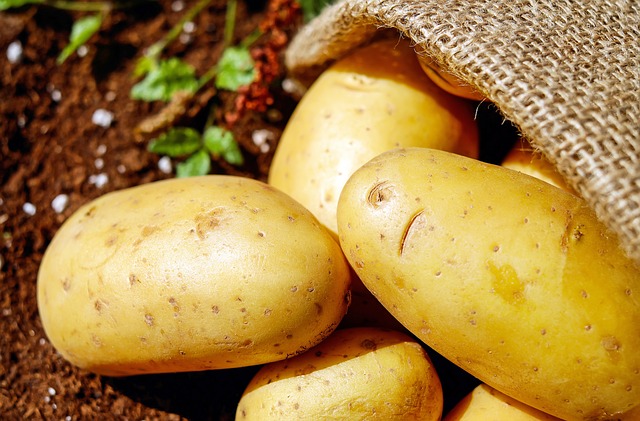
The inverse relationship between potassium and high blood pressure is well recognized and highly valued across the hypertension research community. Potassium is effective in lowering blood pressure hence its recommended use in hypertensive patients. The molecular formula of potassium is K+.

Potassium induced blood pressure lowering reduces the risk of cardiovascular complications namely coronary heart disease, myocardial infarction, and other cardiovascular events. It is also effective in reducing the risk of stroking.
Doctors note that even without high blood pressure problems, by taking 4.7g of potassium, the risk of future cardiovascular complications including stroke falls by some 8% to 15% and between 6% to 11% for heart attack (myocardial infarction).
At the same time, the human body cannot produce potassium naturally. It is sourced from your regular diet. This makes your diet all the more important and potassium an essential nutrient.
Other essential nutrients that you are probably already familiar with include vitamins, dietary minerals, essential fatty acids and essential amino acids.
According to the Food and Nutrition Board of the Institute of Medicine, the recommended intake of potassium at individual level is 4700 mg/day.
In spite of this, the majority of Americans take slightly above half of this requirement which indicates a general potassium deficiency among the bulk of the population.
It is for this reason that potassium has been declared a "shortfall nutrient" by the USDA in its Dietary Guidelines released in 2010. Potassium joins other shortfall nutrients such as calcium and Vitamin D.
With the high levels of sodium consumption in America and corresponding low potassium intake, it seems reasonable to consider that low potassium intake is one major reason behind the high prevalence of hypertension and consequent cardiovascular diseases and related high mortality among Americans.
By the same token, hypertension researchers currently use blood pressure as the primary yardstick for determining potassium requirements. This makes the association between potassium and high blood pressure the more important.
Even so, a number of factors influence individual potassium requirements. These factors include a person's blood pressure, whether its high, low or normal, their dietary sodium intake as well as the individual genetics.
Scientific studies done have revealed interesting detail about potassium and high blood pressure. This being a site captivated by the power of science in resolving health problems, we synthesized what has been researched on potassium and blood pressure; the findings are intriguing...

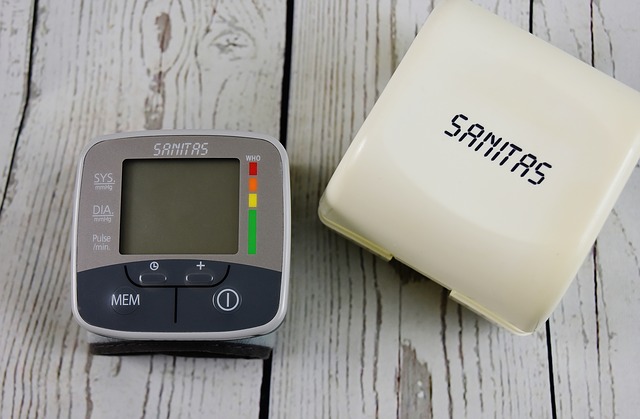
Scientific Evidence On Potassium and High Blood Pressure
Out of a wide range of experimental studies done over the years on potassium and high blood pressure, the following studies contain some fascinating insights on the subject of potassium and blood pressure reduction.
Study 1
In 2011, a report in the Current Hypertension Reports (2011 Aug;13(4):309-17), presented evidence showing that for every 0.6 g per day increase in dietary potassium, there was a corresponding reduction in systolic blood pressure (top number) by 1.0 mm Hg and a reduction in diastolic blood pressure (bottom number) by 0.52 mm Hg.
These are very significant numbers considering that they are being produced by only 0.6g of potassium when the daily requirement is over 4500mg per day.
Nonetheless, the effect of potassium in lowering blood pressure was also influenced by other important factors including race, and intake of other minerals such as calcium, magnesium and sodium.
Concerning the race aspect, the study showed that even after taking the same amount of potassium, compared to Caucasians, blacks enjoyed a greater fall in blood pressure.
In addition, the study also showed that individuals who had a high sodium intake enjoyed greater blood pressure lowering benefits from taking potassium. This points to the role potassium plays in balancing out salt in our bodies.
This is what is also refereed to as sodium-to-potassium ratio a subject we consider in detail below as part of the link between potassium and high blood pressure.
Study 1 apparently shows that potassium is very effective in lowering blood pressure. Other factors that play a role in getting these results such as race and other minerals intake must never be downplayed.

Study 2
A meta-analysis investigation performed by University of Southern California, Los Angeles researchers and published in the April 2017 edition of the American Journal of Physiology - Endocrinology and Metabolism, (2017 Apr 1;312(4):E348-E356), is one of the most recent studies to maintain that potassium is beneficial to managing or preventing high blood pressure.
Correspondingly, by analyzing population data contained in previous studies, the researchers discovered that living in industrialized societies increases the sodium to potassium ratio.
This was evidenced by what becomes of individuals who leave in isolated societies who migrate to live in industrialized societies were high sodium diets are the norm due to processed foods and fast foods.
As a result of a seriously out of balance sodium-potassium ratio, industrialized societies have a higher prevalence of hypertension and associated cardiovascular problems.
Furthermore, by analyzing data of a huge Chinese population sample of more than 500 000 people, it was shown that those who took potassium rich fruits daily or frequently had a corresponding lower risk of major cardiovascular events such as heart attack, stroke and angina.
By the same token, seeing the benefits derived from eating fruits in the Chinese study, keeping in mind that our bodies are unable to create potassium but solely rely on outside sources of the nutrient, below is a well considered research-backed list of dietary sources of potassium.


Where to get your Potassium: Foods Rich in Potassium
Whereas sodium is everywhere in modern diets, one cannot dare say the same about potassium considering that only 7% of Americans are actually meeting the daily potassium requirement.
Statistics like these make the discussion on potassium and high blood pressure the more important.
In order to meet the recommended 4700 mg/day K+ intake, conscious effort that leads to a daily routine is required.
While we discuss the use of potassium supplements later below, here we list the recommended sources of dietary potassium.
Of all dietary potassium sources, potatoes (738g) and canned Prune juice lead the pack. Ironically, studies show that coffee which has been linked to blood pressure spikes is among the top contributors of potassium at 135g or 5.2%.
Food Type
Potato, baked, flesh and skin Prune juice, canned Carrot juice, canned Tomato paste Beet greens, cooked Tomato juice, canned Plain yogurt, nonfat or low fat Tomato puree Sweet potato, baked in skin Orange juice, fresh Bananas Source: Advances In Nutrition |
Potassium Content
738g 707g 689g 664g 595g 556g 555g 549g 542g 496g 422g |
Presented with all these sources of potassium, perhaps the next step is to get better informed about what has been refereed to as the sodium-to-potassium ratio.
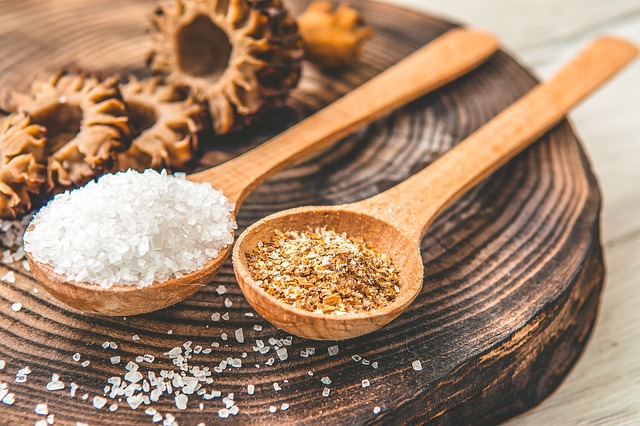
Sodium-to-Potassium Ratio and Blood Pressure
It has been established through various scientific studies that the ratio of sodium to potassium is of paramount importance in addressing the potassium and high blood pressure question.
The correct sodium-to-potassium ratio that is beneficial to blood pressure is 1:2. This means on a daily basis, to be in good balance, we must take in twice the amount of potassium, in milligrams, that we take in sodium i.e sodium (1) : potassium (2).
This ratio is derived from already established daily recommendations of 2300 mg in sodium consumption and 4700mg in potassium intake per day.
Sodium-to-potassium ratio and blood pressure must necessarily be of important consideration at individual level as well as in respect of being a general public health issue.
As a matter of fact, the ratio of sodium-to-potassium is of such importance studies have shown that the ratio is more strongly correlated with high blood pressure compared to sodium or potassium alone.
In this regard, a November 2014 review of existing clinical trials data from previous studies published in the International Review Journal Advances In Nutrition noted that sodium or potassium alone was not associated with blood pressure outcomes to the same extent as sodium-to-potassium ratio in adults suffering from high blood pressure.
The importance of sodium-to-potassium ratio or the significance of considering dietary potassium and sodium together arises from the biochemical interaction between the two.
For example, the Advances in Nutrition journal review highlighted that a reduction in potassium intake increased salt sensitivity particularly among the black population.
Furthermore, individuals with high sodium intake tend to benefit the more from increased potassium ingestion.
It's no secret that salt is a major driver of elevated blood pressure. Balancing it with potassium using the 1:2 ratio is absolutely key to preventing blood pressure, treating hypertension and reducing the risk of complications associated with it.
Even so, in 2011 researchers published their findings in the Archives of Internal Medicine (2011 Jul 11;171(13):1183-91) after ferreting through data contained in the Third National Health and Nutrition Examination Survey.
In confirmation of the relationship between sodium-to-potassium ratio and blood pressure, the investigation presented evidence demonstrating that a high sodium-to-potassium ratio significantly increased the risk of cardiovascular diseases (CVD) and all-cause mortality. All-cause mortality refers to deaths that occur in a population regardless of what caused them.
Put differently, these findings also mean that a lower potassium to sodium ratio exposes individuals concerned to CVD. According to the sodium-to-potassium ratio, the potassium part of the ratio should be double the amount of dietary sodium consumed.
All things considered, hypertension researchers concede that achieving the 1:2 sodium-to-potassium ratio is a difficult task in light of the current diets. People are not eating enough potassium rich foods, yet they are eating twice the amount of sodium daily intake limit.
While studies have shown the strong association between sodium-to-potassium ratio and blood pressure in evaluating blood pressure outcome in people with hypertension, there is still need for studies to determine if this is also the case in individuals with normal blood pressure also called normotensives and in children.
Naturally, the repeated literature reference to potassium as important, understandably so, raises curiosity around the exact methods by which potassium results in low blood pressure.

How Potassium Lowers Blood Pressure
In medicine terms, how potassium lowers blood pressure essentially
refers to the biochemical mechanism behind potassium and blood pressure
interaction which results in reduced blood pressure or which inhibits
the onset of hypertension whatever the case might be.
Biochemical
mechanisms of action have always been a thorn in the flesh for
researchers to explain. While clinical trials may show a correlation
between potassium and high blood pressure, how potassium actually
effects the lowering of blood pressure is not easily understood.
In
this regard, over time a number of purported mechanisms of action
backed by complex biochemical explanations have been put forward by
different hypertension researchers. Some of the propositions are as
follows;
- It is thought that potassium may act as diuretic by removing sodium from the body through urination particularly in salt-dependent hypertension. This is measured by increased sodium content in urine following increased potassium intake. However, while this is a viable mechanism it does not explain long term low blood pressure.
- Similarly, it has also been suggested that potassium changes activity of the renin-angiotensin system also known as RAS. RAS is a hormone system regulating the concentration of salt in the portion of blood called plasma which has an effect on blood pressure alteration.
- Furthermore, diets rich in potassium have been thought to result in decreased blood pressure through potassium's action of reducing the resistance of blood vessels by relaxing vascular smooth muscles. Vascular smooth muscles are found in many blood vessel walls. Hypertension is known to result from blood flow resistance due to stiffened blood vessels.
- Finally, evidence from other studies backs the possibility that potassium modifies central or the peripheral neural mechanisms that are influential in the regulation of blood pressure.
Having been speaking about how potassium lowers blood pressure, the next worthy consideration is potassium deficiency and hypertension.
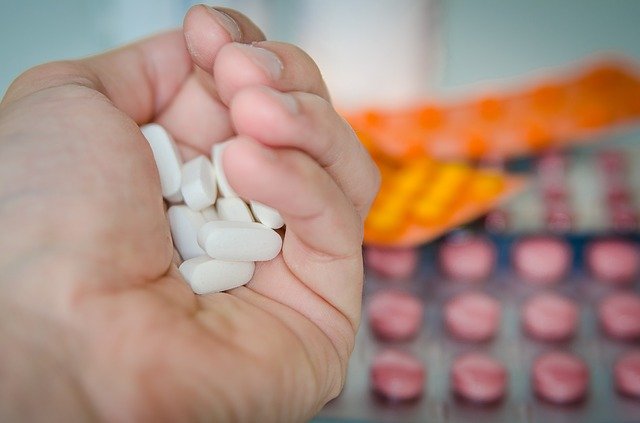
Potassium Deficiency and High Blood Pressure
The relationship between potassium deficiency and high blood pressure has been alluded to through earlier explanations on the link between potassium and high blood pressure.
As a matter of fact, and as already highlighted the vast majority of people living in industrial societies have an acute potassium deficiency which is responsible to a large extent for the high prevalence of hypertension and cardiovascular diseases.
By the same token, using the American standard, a person is potassium deficient if they are unable to meet the daily requirement of 4700mg per day in potassium intake per day.
However, potassium deficiency is also a result of the side effects of medications vs a poor dietary potassium intake. The deficiency of potassium is also known as low potassium or hypokalemia.
Medications that increase urination such as diuretics used as anti-hypertensives and for heart disease necessarily expel a great deal of potassium leading to potassium deficiency leading to high blood pressure.
Correspondingly, researchers have argued that as much as 90% of all dietary potassium is lost through urination. A further 10% is lost through stools with a small amount going via sweat.
Evidence in a 1990 study published in the <cite>Journal of the American Society on Neprology ( 1990 Jul;1(1):43-52)</cite>, found out that people with normal blood pressure consuming normal amounts of salt suffered increased blood pressure as a result of a depletion in potassium.
The study showed that mean arterial pressure increased 90.9 mm Hg to 95.0 mm Hg. Furthermore, the study demonstrated that a sharp increase in salt intake did not increase blood pressure in people who had normal potassium intake. Normal potassium intake acted as some protection against high blood pressure compared to individuals with potassium deficiency.
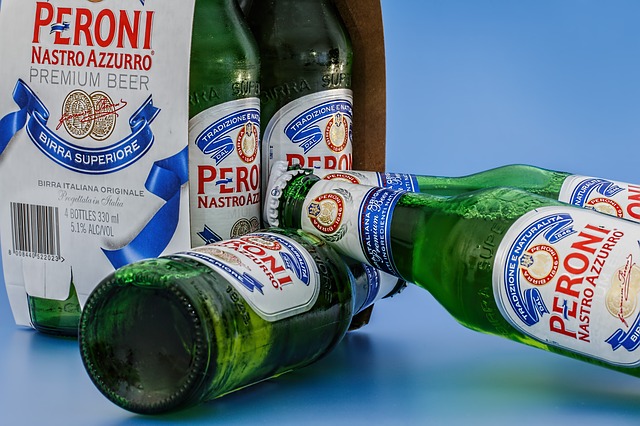
While diuretic medication is one way of losing potassium, potassium deficiency can also be brought about by vomiting and diarrhea. This causes loss of potassium that is found in the digestive tract.
Moreover, excessive alcohol use has also been identified as one other way of loosing potassium. We have also written on the link between alcohol and blood pressure. Potassium deficiency brought about by alcohol abuse could possibly be linked to alcohol induced hypertension.
Again, the Dietary Approaches to Stop Hypertension study which produced the highly regarded DASH diet has linked potassium deficiency to high blood pressure. The diet is a corrective and preventative measure to help reduce population wide effects of potassium deficiency.
Perhaps the most persuading connection between deficiency in potassium and high blood pressure was demonstrated in INTERSALT study involving the legendary Yanomami Indians in Brazil. This tribal group which consumes mostly a vegetarian diet with very limited sodium, had no high blood pressure and no increase in blood pressure with age.
The group had very low urinary sodium excretion. Their mean blood pressure considered among the lowest had a mean systolic blood pressure of94.5 mm Hg, and a mean diastolic blood pressure of of 61.4 mm Hg.
All things considered, an increase in potassium intake in the United States would cut the number of people with hypertension by 17% adding to life lived among 12 million Americans some additional 5.1 years according to the American Heart Association.
Finally, considering that many of us would find it an uphill task to take in enough dietary potassium to meet the recommended daily requirements so as to avoid potassium deficiency; the question to be asked is could we successfully turn to potassium supplements and win?

Potassium Supplements and High Blood Pressure
Apparently findings on the relationship between potassium supplements and high blood pressure offer some hope among the general population that is unable to reach sufficient potassium intake by counting on dietary potassium alone.
Study 1
A 1999 study in Seminars in Nophrology (1999 Sep;19(5):494-9) which analyzed data involving 2,609 participants confirmed that potassium supplements were effective in lowering high blood pressure.
Orally administered potassium supplementation produced significant decreases in mean systolic blood pressure by 4.44 mm Hg and diastolic blood pressure by 2.45 mm Hg. Such reductions in both systolic and diastolic blood pressure translate into significant reductions in cardiovascular related risks, previous studies have shown.
Comparatively, the positive effects of potassium supplements were most pronounced in people who had a higher sodium intake. The study recommended the use of potassium supplements to prevent and to treat high blood pressure more-so in individuals unable to temper down their sodium intake.
Study 2
Yet another 1991 study shared with the larger hypertension research community in the Journal of Hypertension (1991 May;9(5):465-73) recommended treatment of hypertension through increased potassium intake making use of supplements instead of pharmacological drugs.
The study recommended this approach in the control of uncomplicated essential hypertension. Essential hypertension is high blood pressure with no identifiable cause.
To arrive at these results, the researchers analyzed a total of 19 previous clinical trials involving a total of 586 participants out of which 412 had essential hypertension.
Detail of the findings is that orally administered potassium supplements lowered systolic blood pressure by 5.9 mm Hg and diastolic blood pressure by 3.4 mm Hg.
Interesting findings in this study which did not feature in the findings of Study 1 was that potassium's blood pressure lowering effect was greater in people with high blood pressure were systolic pressure fell by 8.2 mm Hg and diastolic pressure by 4.5 mm Hg.
Moreover, there was indication that the lowering of the blood pressure was more pronounced according to the length of time the potassium supplements were in use.
Study 3
By reviewing 15 past clinical trials involving 917 patients, a 2015 study published in Journal of Hypertension (2015 Aug;33(8):1509-20) also concluded that potassium supplements are effective in lowering high blood pressure.
In this particular study, systolic blood pressure reduced by 4.7 mmHg and diastolic blood pressure by 3.5 mm Hg in all the participants.
The findings of this study agreed with Study 2 in which individuals with hypertension benefited the most from potassium induced blood pressure reduction i.e 6.8 mmHg and 4.6 mmHg respectively for systolic and diastolic pressure.
While researchers confirm the link between supplements for potassium and high blood pressure, they also highlight that potassium supplements take time to take effect.
For instance, response to potassium supplementation has been shown to take approximately 4 weeks.
Overall as we have demonstrated, potassium and high blood pressure have an inverse relationship.
While the majority of people struggle to meet the daily dietary potassium requirements, the foregoing studies present ample evidence that potassium supplements are an effective alternative source of potassium for lowering high blood pressure.
[Last Updated: 21 October 2017]

|
|
Alcohol and Blood Pressure |
Return to How To Treat Hypertension from Potassium And High Blood Pressure
Return to Hypertension Home from Potassium And High Blood Pressure
Disclaimer
Information contained on this website is not meant to replace your doctor's advice.
(c) All Rights Reserved. 2010-2018


